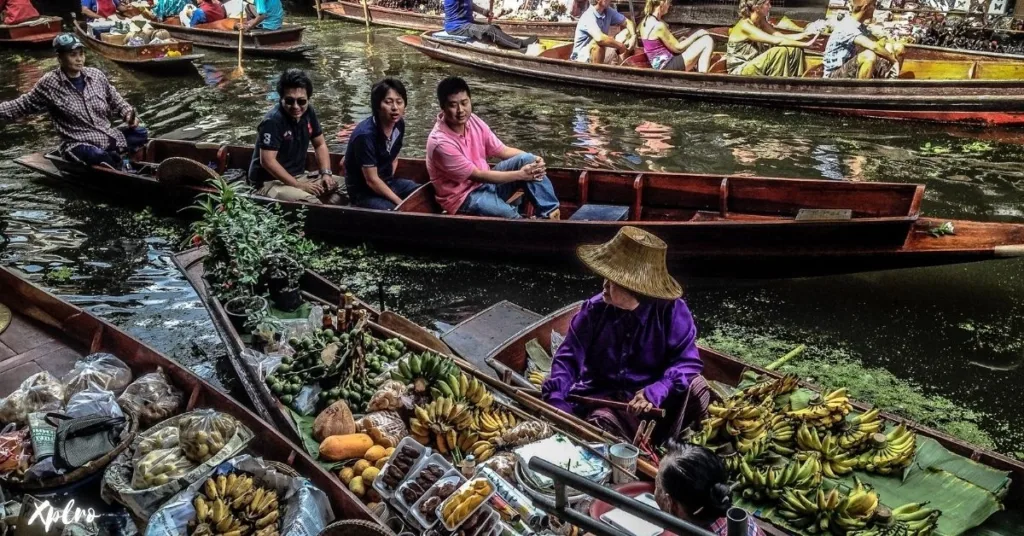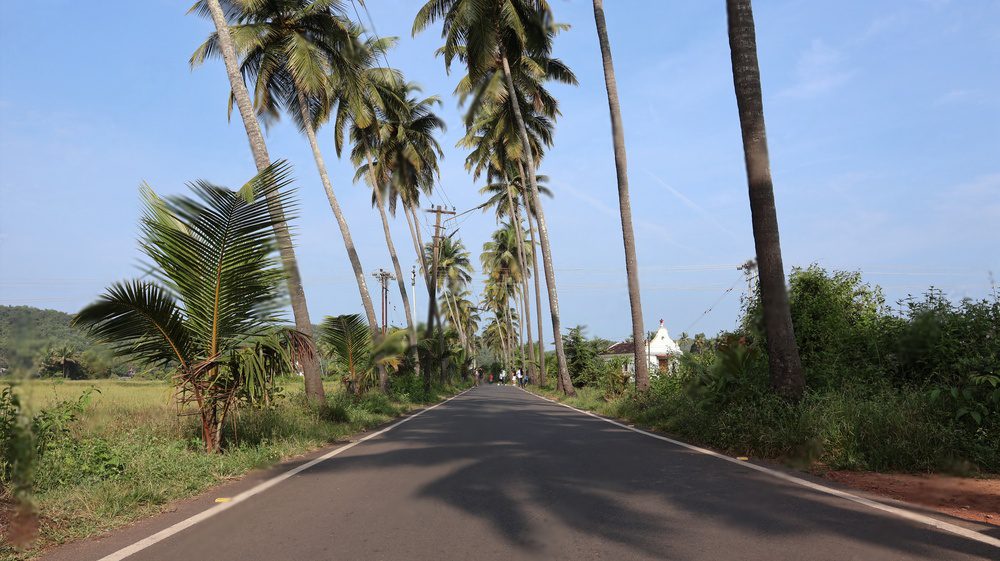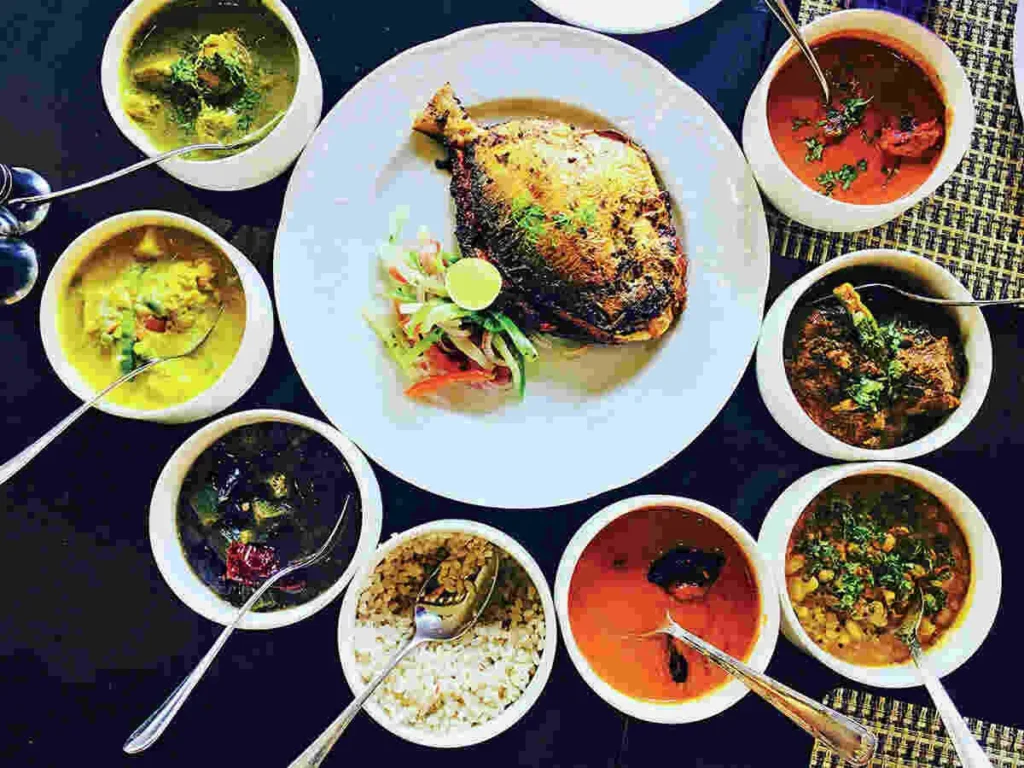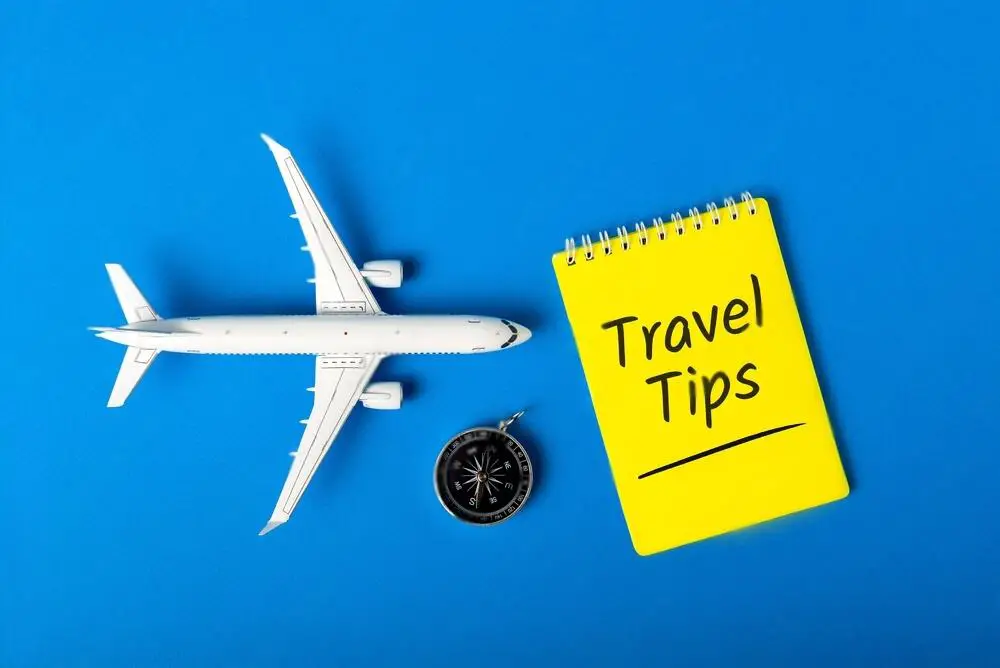Phrases to Make Your Trip Easier: Traveling to Thailand is a delightful experience filled with beautiful landscapes, rich culture, and delicious food. While English is widely spoken in tourist areas, learning a few basic Thai phrases can significantly enhance your trip. Speaking even a little Thai can help you connect with locals, navigate more confidently, and show respect for the local culture. This guide covers essential Thai phrases to help make your journey smoother, whether you’re haggling at markets, ordering food, or simply greeting someone.
1. Why Learn Basic Thai?
Learning a few basic Thai phrases can significantly enhance your travel experience in Thailand. Here’s why:
- Cultural Connection: Locals appreciate the effort made by tourists to learn their language, fostering a deeper cultural connection.
- Practical Benefits: Simple phrases can be incredibly useful in everyday situations, from asking for directions to haggling at markets.
- Politeness Matters: Thai culture places great importance on politeness. Using respectful language can leave a positive impression on locals.
2. Greetings and Basic Etiquette Phrases
Basic Greetings
- Hello:Sawatdee (สวัสดี)
- Men usually say Sawatdee khrap (สวัสดีครับ).
- Women say Sawatdee kha (สวัสดีค่ะ).
- Goodbye: Laa gorn (ลาก่อน)
- Thank you:Khop khun (ขอบคุณ)
- Men say Khop khun khrap.
- Women say Khop khun kha.
Polite Expressions
- Sorry/Excuse me: Khot tod (ขอโทษ)
- Yes: Chai (ใช่)
- No: Mai chai (ไม่ใช่)
- Please: Khorp (ขอ)
- You’re welcome: Mai pen rai (ไม่เป็นไร) – This literally means “it doesn’t matter” and is a common response to “thank you.”
Useful Phrases for Daily Interactions
- How are you? Sabai dee mai? (สบายดีไหม)
- I’m fine, thank you. Sabai dee khap/kha, khop khun (สบายดีครับ/ค่ะ ขอบคุณ)
- What’s your name? Khun cheu arai? (คุณชื่ออะไร)
- My name is… Phom/Dichan cheu… (ผม/ดิฉันชื่อ…) – Phom is for men, Dichan is for women.
- Nice to meet you. Yindee tii dai ruujak (ยินดีที่ได้รู้จัก)
Remember:
- The words khrap and kha are added at the end of sentences to show politeness and respect.
- Tone of voice is important in Thai. A smile and a gentle tone can go a long way.
3. Numbers and Money
More Numbers
- Four: Si (สี่)
- Five: Ha (ห้า)
- Six: Hok (หก)
- Seven: Chet (เจ็ด)
- Eight: Paet (แปด)
- Nine: Kao (เก้า)
- Twenty: Yi sip (ยี่สิบ)
- Fifty: Ha sip (ห้าสิบ)
Money and Shopping Phrases
- How much is this?: Ani tao rai? (อันนี้เท่าไหร่)
- That’s too expensive: Phaeng gein pai (แพงเกินไป)
- Can you give me a discount?: Lot rai dai mai? (ลดราคาได้ไหม)
- I’ll take it: Ao an nee (เอาอันนี้)
- I want to see something else: Khorng oon aai yu? (ของอื่นมีอีกไหม)
- Where is the nearest ATM?: ATM yoo tee nai? (ATM อยู่ที่ไหน)
Counting Money
- One baht: Neung baht (หนึ่งบาท)
- Ten baht: Sip baht (สิบบาท)
- One hundred baht: Roi baht (ร้อยบาท)
- One thousand baht: Pun baht (พันบาท)
Tip: When dealing with larger numbers, you can combine these words. For example, 250 baht would be “Song roi ha sip baht” (สองร้อยห้าสิบบาท).
Practice Makes Perfect
Try using these phrases when you’re out and about in Thailand. The more you practice, the more confident you’ll become.
4. Directions and Transportation
Getting Around
- Where is the bus stop?: Paa yoo tee nai? (ป้ายอยู่ที่ไหน)
- Where is the train station?: Sataani rot fai yoo tee nai? (สถานีรถไฟอยู่ที่ไหน)
- Can you help me?: Khun chuay dai mai? (คุณช่วยได้ไหม)
- I’m lost: Phom/Dichan lang (ผม/ดิฉันหลงทาง)
Food and Drinks
- I’m hungry: Phom/Dichan hiu (ผม/ดิฉันหิว)
- I’m thirsty: Phom/Dichan daab (ผม/ดิฉันกระหายน้ำ)
- Can I have a menu?: Khorng aan ahaan dai mai? (ของอ่านอาหารได้ไหม)
- I’d like a beer: Khorng bia 1 geiap (ขอเบียร์ 1 แก้ว)
- No ice, please: Mai ao nam kaeng khap/kha (ไม่อาบน้ำแข็งครับ/ค่ะ)
Accommodation
- I’m looking for a hotel: Phom/Dichan khaa rong raem (ผม/ดิฉันหาโรงแรม)
- How much is a room for one night?: Hong nim neung khuen tao rai? (ห้องนอนหนึ่งคืนเท่าไหร่)
- Do you have any vacancies?: Mee hong wang ai mai? (มีห้องว่างไหม)
Other Useful Phrases
- I don’t understand: Phom/Dichan mai kao jai (ผม/ดิฉันไม่เข้าใจ)
- Please speak slowly: Khorp phuut cha cha (ขอพูดช้าๆ)
- Today: Wan nee (วันนี้)
- Tomorrow: พรุ่งนี้ (Prùng nee)
- Yesterday: Meua waan nee (เมื่อวานนี้)
Remember:
- Tone: Thai is a tonal language, so the tone of your voice can change the meaning of a word. Pay attention to how locals pronounce words.
- Body language: Smiling and using a respectful tone of voice can go a long way in Thailand.
- Wai: The wai is a traditional Thai greeting. It’s done by pressing the palms together in front of the chest and bowing slightly.
5. Dining and Food-Related Phrases
Ordering Food
- What do you recommend?: Khun chok aarai di? (คุณชอบอะไรดี)
- I’d like to try something new: Khorng lon aai yu mai? (ของลองอะไรมีไหม)
- Can I have a glass of water?: Khorng nam 1 geiap (ขอน้ำ 1 แก้ว)
- More rice, please: Khorng kao iik nit noi (ขอข้าวอีกนิดหน่อย)
- I’m full: Kin ao laew (กินอิ่มแล้ว)
Describing Your Preferences
- I like it spicy: Chom phet (ชอบเผ็ด)
- I don’t like it sweet: Mai chom wan (ไม่ชอบหวาน)
- Can you make it less oily?: Khorp tham mai man noi (ขอทำไมมันน้อย)
- I’m allergic to peanuts: Phom/Dichan allerji tua thuo (ผม/ดิฉันแพ้ถั่ว)
At the Market
- How much per kilo?: Kilo lat tao rai? (กิโลละเท่าไหร่)
- I’d like to buy this: Khorng an nee (ของอันนี้)
- Can I have a taste?: Lon chai dai mai? (ลองชิมได้ไหม)
Other Useful Phrases
- Where can I find a good restaurant?: Raan ahaan aroi yoo tee nai? (ร้านอาหารอร่อยอยู่ที่ไหน)
- What time does the restaurant close?: Raan ahaan pat tuu mai? (ร้านอาหารปิดกี่โมง)
Remember:
- Thai food can be very spicy. If you can’t handle spicy food, be sure to use the phrase “mai sai prik” (ไม่ใส่พริก) or point to a chili and shake your head.
- Many Thai dishes are served with sticky rice. If you prefer regular rice, you can ask for “khao jao” (ข้าวเจ้า).
6. Shopping and Markets
Bargaining


- That’s too expensive: Phaeng gein pai (แพงเกินไป)
- Can you give me a discount?: Lot rai dai mai? (ลดราคาได้ไหม)
- How about 50 baht?: Ha sip baht dai mai? (ห้าสิบบาทได้ไหม)
Asking for Specific Items
- Do you have any fruits?: Mee phonlang mai? (มีผลไม้ไหม)
- Do you have any souvenirs?: Mee anumati mai? (มีอนุสรณ์ไหม)
- I’m looking for a T-shirt: Khorng ti-shot (ของทีเชิ้ต)
Understanding Quantities
- How much is this? (for a specific item): Ani tao rai? (อันนี้เท่าไหร่)
- How much per kilo? (for fruits, vegetables, etc.): Kilo lat tao rai? (กิโลละเท่าไหร่)
- Can I have half a kilo? (for fruits, vegetables, etc.): ครึ่งกิโลได้ไหม? (ครึ่งกิโลได้ไหม)
Other Useful Phrases
- Where is the bathroom? ห้องน้ำอยู่ไหน? (ห้องน้ำอยู่ไหน)
- I don’t speak Thai very well: พูดภาษาไทยไม่เก่ง (พูดภาษาไทยไม่เก่ง)
- Can you speak English? พูดภาษาอังกฤษได้ไหม? (พูดภาษาอังกฤษได้ไหม)
Cultural Tip
- Bargaining is expected in many Thai markets. Don’t be afraid to haggle, but always do so with a smile and a respectful tone.
By learning these phrases, you’ll be well-equipped to enjoy the vibrant atmosphere and unique shopping experiences that Thailand’s markets have to offer.
7. Emergency Phrases
Medical Emergencies
- I have a headache: Chan mi hua set (ฉันมีหัวเสีย)
- I have a stomachache: Chan thong thian (ฉันท้องเสีย)
- I cut myself: Chan tat tua eng (ฉันตัดตัวเอง)
- I’m allergic to…: Chan allergy tua… (ฉันแพ้ตัว…)
Other Emergencies
- Fire!: Fai mai! (ไฟไหม้!)
- There’s been an accident: Mi attit (มีอุบัติเหตุ)
- I need to go to the hospital: Chan dtong pai rong phya baan (ฉันต้องไปโรงพยาบาล)
- Can you call an ambulance?: Khun riak rot phya baan dai mai? (คุณเรียกรถพยาบาลได้ไหม)
Asking for Directions to a Hospital or Police Station
- Where is the nearest hospital?: Rong phya baan thii nai thii sud yoo tee nai? (โรงพยาบาลที่ใกล้ที่สุดอยู่ที่ไหน)
- Where is the police station?: Sataani tamruat yoo tee nai? (สถานีตำรวจอยู่ที่ไหน)
Additional Tips:
- Learn the Thai word for your nationality: This can be helpful in emergency situations. For example, “Phom/Dichan pen kon American” (ผม/ดิฉันเป็นคนอเมริกัน) means “I am American.”
- Carry a small phrasebook or use a translation app. This can be useful if you need to communicate more complex ideas.
- Pointing and gesturing can be helpful if you don’t know the exact word for something.
Remember:
- Stay calm in an emergency situation.
- Repeat yourself if the person doesn’t understand you.
- Try to find someone who speaks English.
8. Respectful Words and Local Customs
Cultural Etiquette Tips
- The Wai: As you mentioned, the wai is a traditional Thai greeting. It’s performed by pressing the palms together in front of the chest and bowing slightly. The higher you place your hands, the more respect you’re showing.
- Foot Etiquette: In Thai culture, feet are considered the lowest part of the body. Avoid pointing your feet at people or Buddha images. Also, never step over someone’s legs or belongings.
- Temple Etiquette: When visiting temples, dress modestly. Cover your shoulders and knees. Remove your shoes before entering the temple grounds.
- Public Displays of Affection: Public displays of affection are generally frowned upon in Thai culture, especially in more conservative areas.
- Bargaining: While bargaining is common in markets, it’s important to do so politely and respectfully.
9. Tips for Practicing Thai
Here are a few more tips to help you improve your Thai language skills:
- Immerse yourself in the language: Watch Thai dramas or movies, listen to Thai music, or read Thai books and articles.
- Find a language exchange partner: Practice speaking Thai with a native speaker.
- Take a Thai language class: A structured learning environment can help you learn grammar and vocabulary more effectively.
- Use flashcards: Create flashcards to review vocabulary and grammar.
- Record yourself speaking Thai: Listen to your pronunciation and identify areas for improvement.
- Don’t be afraid to make mistakes: Mistakes are a natural part of the learning process. The more you practice, the better you’ll become.
Remember, the key to learning a language is consistent practice.
10. Final Thoughts – Phrases to Make Your Trip Easier
Learning a few basic Thai phrases isn’t just practical, it’s a way to elevate your entire Thai adventure. It shows respect for the culture, opens doors to more meaningful interactions, and makes the whole experience more enjoyable. Even if your pronunciation isn’t perfect, Thai people are known for their warm hospitality and will appreciate your effort. So grab your travel notebook, fill it with these handy phrases from Xplro.com (your one-stop shop for crafting unforgettable travel experiences), and get ready to dive into the Land of Smiles with confidence!
FAQs
1. Why is it useful to learn basic Thai phrases for a trip?
- Learning a few Thai phrases can enhance your travel experience by making communication smoother, showing respect for the local culture, and helping you connect with people in a meaningful way.
2. Is English commonly spoken in Thailand?
- English is widely spoken in tourist hubs, hotels, and major cities. However, in smaller towns or local markets, basic Thai phrases can be very useful as not everyone speaks English fluently.
3. What is the key greeting phrase to know in Thai?
- The most important phrase to learn is Sawasdee (hello). Men should say Sawasdee khrap, and women say Sawasdee kha. It can also be used to say goodbye.
4. How can I express gratitude in Thai?
- To say “thank you,” use Khop khun. Add khrap if you’re a man or kha if you’re a woman to make it polite.
5. How can I ask for directions in Thai?
- You can say Yoo tee nai? (Where is it?) or Bpai yang ngai? (How do I go there?). Using maps or pointing at destinations can help clarify your question.
6. What’s a polite way to negotiate in Thai markets?
- When bargaining, you can use phrases like Lot dai mai? (Can you reduce the price?) or Phaeng mak (That’s expensive) to negotiate respectfully.
7. Are Thai numbers easy to learn for tourists?
- Yes, Thai numbers are straightforward. Knowing basic ones like neung (one), song (two), and sam (three) will make shopping or asking prices easier.
8. How do I make my Thai phrases sound polite?
- In Thai culture, politeness is key. Add khrap (if you’re male) or kha (if you’re female) to the end of your sentences to show respect.
9. What should I say during an emergency in Thailand?
- In urgent situations, you can say Chuey duay! (Help!) or Riak tamruat (Call the police). Keeping a written copy of emergency phrases can also be helpful.
10. Is it okay to use gestures if I struggle with Thai pronunciation?
- Yes, using hand gestures or pointing is perfectly acceptable and can help locals understand you when you’re struggling to pronounce Thai words.
11. Will locals mind if I mispronounce Thai words?
- No, Thai people are generally kind and appreciate your effort to speak their language. Even if you make mistakes, they are likely to respond with patience and a smile.








